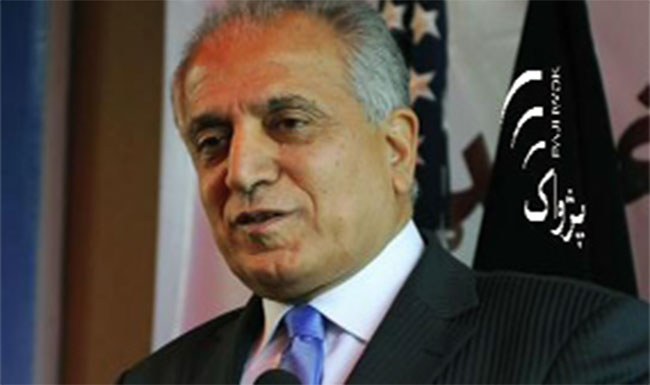WASHINGTON - America’s initial assessment of Afghanistan when the Soviet forces invaded the country went wrong, former US ambassador Zalmay Khalilzad said Wednesday.
He favoured the United States staying the course in Afghanistan and remaining engaged in the nation-building exercise if Washington really desired to prevent major terrorist attacks.
Khalilzad told a Washington audience the United States failed in adjusting its policies in Afghanistan after the Soviets left and became disengaged -- a move which had disastrous consequences.
“We disengaged. That disengagement has had disastrous consequences,” Khalilzad said in his remarks before the Atlantic Council, a top American think-tank.
“If our goal is to prevent Afghanistan from being used as a ground for terrorist attacks against the United States, then I am an advocate for staying the course (in Afghanistan),” the former diplomat said.
Leaving that country would mean the US going back to Afghanistan, he argued. Any pullout programme had to be realistic, he stressed, while responding to questions on his memoir “The Envoy: From Kabul to the White House.”
The event at the Atlantic Council was sponsored by the Bayaat Foundation. “I took my time in order to reflect on my work,” he said, when asked why he had written the book seven years after he left the Bush administration.
He left Kabul in 1966 and went on to become a top-ranking Afghan-American in any presidential administration. He has served as a US diplomat in Afghanistan, Iraq and the United Nations.
Afghanistan was quite an orderly place, unlike the impression that the country and its tribes were always fighting among each other, he said.
“During the course of war, the US assumed that Soviets would prevail in Afghanistan and the American objective was to inflict a huge cost on the Russians so that they are not able to repeat this in any other part of the world,” he added.
The US achieved more than that in Afghanistan, he claimed, insisting that such an American assumption was wrong. As a result, the US had to make necessary adjustment in its policies.
“We achieved the big objective of Soviet suffering. Maybe Afghanistan played a role in the Soviet disintegration. One lesson is that at some places we are good in counter-punching.
“From 1987 we have should begin to adjust. We needed to appoint someone who worked directly with the Afghans and not solely leave it to the US Ambassador in Islamabad,” he observed.
In the book, Khalilzad gives a first-hand account of his travel from Kabul to the high echelons of White House, including an in-depth account of the war against the Soviets, the Taliban, post 9/11, formation of the Karzai government and the role of Pakistan. (Pajhwok)
Home » Afghanistan » Stay the Course in Afghanistan, Khalilzad Advises US
Stay the Course in Afghanistan, Khalilzad Advises US

